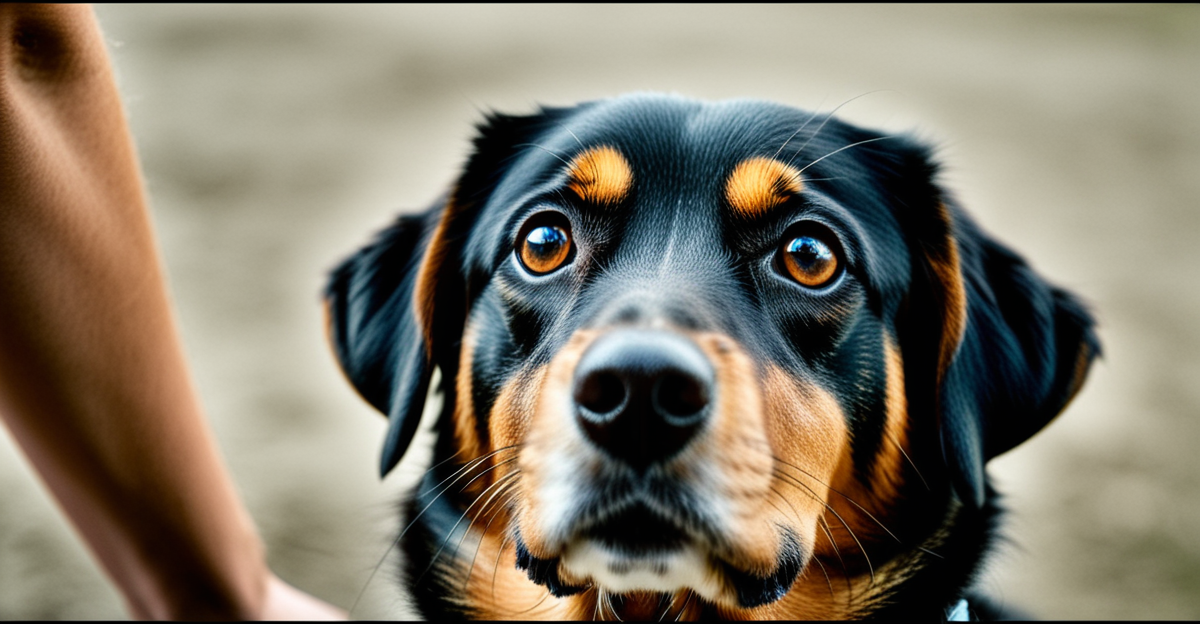Summary of Key Legal Responsibilities for Pet Owners in the UK
Understanding UK pet ownership legal duties is essential for every pet owner to ensure their animals’ well-being and compliance with the law. One of the core obligations includes fulfilling the standards set out by the Animal Welfare Act 2006, which requires owners to meet the basic needs of their pets, such as providing adequate food, water, shelter, and medical care.
Pet owner responsibilities also encompass controlling pets in public areas, adhering to microchipping laws, and preventing any nuisance or harm caused by their animals. The law mandates responsible supervision and imposes penalties for neglect or failure to comply with regulations.
Have you seen this : Why Do Pets in the UK Have Unique Dietary Needs?
Compliance with these legal duties not only protects animals but also helps owners avoid fines and legal prosecution. It ensures a safe environment for both pets and the public. Awareness and understanding of these responsibilities empower pet owners to provide the appropriate care and avoid common legal pitfalls in UK pet ownership.
Summary of Key Legal Responsibilities for Pet Owners in the UK
When it comes to UK pet ownership legal duties, understanding your core responsibilities is essential for both the welfare of your pet and compliance with the law. The Animal Welfare Act 2006 forms the backbone of pet owner responsibilities, mandating a duty of care to ensure animals’ health and well-being. This includes providing suitable nutrition, housing, protection from pain and injury, and the ability to express normal behaviour.
In the same genre : How Can UK Residents Protect Their Pets During a Heatwave?
Pet owners must also adhere to microchipping laws, especially for dogs and, from 2024, cats, ensuring identification rules are followed to aid in lost pet recovery. Controlling pets in public spaces falls under legal expectations too, with leash and muzzle regulations designed to protect others while preventing nuisance or harm.
Failure to comply with these UK pet ownership legal duties can lead to penalties such as fines and prosecution. Understanding these responsibilities allows owners to provide a safe environment for their pets and maintain harmony within the community. Responsible ownership is not only a legal obligation but a fundamental part of ethical pet care in the UK.
Animal Welfare Act 2006: Foundational Responsibilities
The Animal Welfare Act 2006 sets the cornerstone for pet welfare standards under UK law on animal care. It specifically outlines five welfare needs that every pet owner must address: a suitable environment, a suitable diet, the ability to exhibit normal behaviour patterns, housing with or apart from other animals as appropriate, and protection from pain, suffering, injury, and disease. Meeting these needs is a fundamental pet owner responsibility.
Under this Act, there is a clear duty of care requiring owners to take reasonable steps to ensure their pets’ well-being and prevent harm. Failure to adhere to these standards can lead to serious penalties, including fines and potential imprisonment. For instance, neglecting to provide proper nutrition or medical care could constitute a breach of the Act.
These legal duties are designed not only to safeguard animals but also to educate pet owners about ethical and responsible ownership. Compliance with the Animal Welfare Act 2006 is essential. It fosters trust between the public and pet owners, supports animal health, and reduces the risk of cruelty investigations by local authorities or animal welfare organisations. Understanding and upholding these obligations demonstrates commitment to the well-being of pets within the UK.
Summary of Key Legal Responsibilities for Pet Owners in the UK
Understanding UK pet ownership legal duties means recognising the core obligations set by law to ensure animals receive proper care. Central to these duties is the Animal Welfare Act 2006, which establishes standards that every pet owner must meet. This UK legislation outlines specific responsibilities, such as providing suitable food, water, shelter, and the ability for pets to express natural behaviours.
Pet owner responsibilities also include preventing avoidable suffering or harm by ensuring pets are safe and treated humanely. Compliance with these legal frameworks maintains animal welfare standards and protects public safety. For example, the law requires keeping pets under control, preventing nuisance, and observing local regulations, all underpinned by the guidance of the Animal Welfare Act 2006.
Neglecting these responsibilities may lead to legal consequences, including fines or prosecution, highlighting the importance of understanding these duties fully. Ultimately, adherence to UK pet ownership legal duties reflects responsible ownership, ensuring pets thrive within a safe and respectful environment governed by clear UK laws on animal welfare.
Summary of Key Legal Responsibilities for Pet Owners in the UK
UK pet ownership legal duties encompass a broad range of pet owner responsibilities grounded in legislation to ensure animal welfare and public safety. The Animal Welfare Act 2006 is central, establishing minimum standards for care, including proper feeding, suitable housing, and medical attention. This Act enforces a duty of care, compelling owners to actively prevent their pets from suffering or causing harm.
Beyond the Animal Welfare Act 2006, numerous laws regulate pet identification, control in public areas, and prevention of nuisance behaviours. Compliance with these obligations demonstrates responsible ownership and reduces risks of legal penalties. For example, failure to meet these legal duties can result in fines or prosecution, reflecting the serious nature of pet welfare enforcement.
Understanding and adhering to these UK pet ownership legal duties supports a harmonious coexistence between pets, owners, and the community. It encourages proactive care and responsible stewardship, which are critical for meeting legal expectations and protecting animal health and safety. Pet owners are advised to stay informed about their legal responsibilities, as these can evolve to reflect emerging animal welfare standards and community needs.
Summary of Key Legal Responsibilities for Pet Owners in the UK
Understanding UK pet ownership legal duties is vital for ensuring pets receive proper care under the law. Core legal obligations for pet owners derive primarily from the Animal Welfare Act 2006, which outlines specific duties to meet an animal’s essential welfare needs. These responsibilities include providing adequate food, water, shelter, and opportunities for animals to express their natural behaviours.
UK law on pet welfare extends beyond basic care to encompass controlling pets in public areas and preventing harm or nuisance caused by animals. Compliance with these duties is crucial, as it protects not only the pet’s well-being but also public safety and community harmony.
Pet owner responsibilities also demand awareness of evolving legislation, such as microchipping laws and control measures. Failing to abide by the Animal Welfare Act 2006 and other regulations may lead to penalties, including fines or prosecution, underscoring the importance of responsible ownership. By understanding and fulfilling these UK pet ownership legal duties, owners uphold ethical standards and safeguard their pets’ quality of life within the legal framework.
Consequences and Penalties for Breaching Legal Responsibilities
When pet owners fail to meet UK pet ownership legal duties, enforcement mechanisms activate to ensure compliance and animal welfare protection. Prosecution for pet neglect is a serious outcome, often pursued when evidence shows a breach of the Animal Welfare Act 2006 or other regulations. Such prosecutions signal that pet owner responsibilities carry legal weight beyond recommendations.
Penalties can range from fines for minor infractions to bans on pet ownership or even imprisonment for severe cases of cruelty or neglect. Local authorities and organisations like the RSPCA play pivotal roles in investigating reports of mistreatment, ensuring allegations lead to appropriate legal consequences when warranted.
For example, persistent failure to provide adequate food, shelter, or veterinary care may prompt legal action including fines and confiscation of animals. Additionally, irresponsible behaviour causing harm or nuisance can trigger penalties under various laws. Ensuring compliance with UK pet ownership legal duties deters these outcomes, advocating for responsible stewardship.
Understanding the potential consequences reinforces the importance of diligent care. Pet owners should remain proactive to avoid prosecution for pet neglect, emphasizing that fulfilling legal responsibilities is both a moral and legal imperative.
Summary of Key Legal Responsibilities for Pet Owners in the UK
UK pet ownership legal duties focus on ensuring animals’ welfare through clear, enforceable pet owner responsibilities anchored in the Animal Welfare Act 2006. This legislation sets the foundation for the legal framework governing pet care, defining standards for feeding, shelter, medical treatment, and behavioural needs. Complying with these duties is essential to uphold animal welfare and public safety.
Beyond the Animal Welfare Act 2006, other laws complement pet owner responsibilities by regulating areas such as pet microchipping, control in public spaces, and nuisance prevention. Together, these create a comprehensive system that requires owners to care proactively for their pets while respecting community welfare.
Failure to meet these UK pet ownership legal duties can lead to penalties, including fines and prosecution. Responsible ownership goes beyond legal compliance; it reflects an ethical commitment to the animal’s quality of life. Understanding and implementing these legal responsibilities helps owners prevent avoidable suffering and fosters trust between pet owners, authorities, and the public. Awareness of evolving legislation also enables owners to adapt to new requirements, securing a safer and more harmonious environment for pets and people alike.
Summary of Key Legal Responsibilities for Pet Owners in the UK
UK pet ownership legal duties establish clear expectations for owners to safeguard animal welfare. Central to these duties is the Animal Welfare Act 2006, which sets out fundamental standards all pet owners must follow. This legislation requires that pets’ essential needs—such as adequate nutrition, suitable shelter, and protection from pain or distress—are consistently met. The Act also affirms a clear duty of care, obliging owners to take reasonable steps to prevent harm or suffering.
Beyond the Animal Welfare Act 2006, pet owner responsibilities include adherence to specific regulations like microchipping, control of pets in public spaces, and prevention of nuisance behaviours, each with their own legal framework. Compliance is not optional; failure to follow these laws carries penalties ranging from fines to prosecution, underscoring the importance of responsible ownership.
Understanding and fulfilling UK pet ownership legal duties benefits both pets and the wider community by promoting health, safety, and ethical treatment. Pet owners who stay informed about these responsibilities are empowered to provide the necessary care, reduce risks of legal sanctions, and contribute to positive animal welfare outcomes within the UK legal system.
Summary of Key Legal Responsibilities for Pet Owners in the UK
UK pet ownership legal duties require every owner to observe core obligations that protect animal welfare and public safety. Central to these obligations is the Animal Welfare Act 2006, which establishes clear standards for pet care. This legislation mandates that owners provide adequate nutrition, suitable shelter, and medical care while ensuring pets can exhibit natural behaviours.
Beyond the Animal Welfare Act 2006, pet owner responsibilities include compliance with laws regulating animal control, identification, and prevention of harm or nuisance. These responsibilities collectively form a legal framework designed to safeguard pets and the community.
Adherence to UK pet ownership legal duties is essential to demonstrate responsible ownership. Non-compliance can lead to penalties such as fines, prosecution, or other legal consequences. The law expects owners to take reasonable steps to protect their pets from avoidable suffering and prevent behaviours that may cause public disturbance or harm.
Understanding the full scope of these responsibilities empowers pet owners to provide their animals with safe and humane care. Moreover, it fosters community trust and supports ongoing efforts to improve animal welfare standards within the UK legal system.
Summary of Key Legal Responsibilities for Pet Owners in the UK
Understanding UK pet ownership legal duties involves recognising the core legal obligations pet owners must meet to ensure animal welfare and comply with the law. Central to these responsibilities is the Animal Welfare Act 2006, which mandates owners to provide for their pets’ five essential needs: appropriate food, suitable environment, opportunity to express normal behaviour, companionship if relevant, and protection from pain or harm.
The Animal Welfare Act 2006 also enforces a clear duty of care to prevent suffering or neglect. Beyond this act, pet owners must adhere to laws covering identification, public control, and nuisance prevention, making the scope of UK pet owner responsibilities comprehensive.
Compliance with these UK pet ownership legal duties is crucial for responsible ownership. It reduces risks of legal penalties and ensures the well-being of pets and safety of the public. Legal adherence promotes ethical treatment and helps avoid consequences such as fines or prosecution. Being fully aware of these duties empowers pet owners to maintain a safe, healthy environment for their animals while fulfilling their legal obligations under UK law.
Summary of Key Legal Responsibilities for Pet Owners in the UK
Understanding UK pet ownership legal duties involves recognising the core obligations set by legislation to ensure animal welfare and public safety. Central to these is the Animal Welfare Act 2006, which imposes clear duties on pet owners to meet essential needs like providing adequate food, shelter, medical care, and opportunities for natural behaviour. This Act establishes the foundation for all other pet care laws in the UK.
Beyond the Animal Welfare Act 2006, pet owner responsibilities extend to laws regulating the control of pets in public, identification requirements such as microchipping, and prevention of nuisance. Each legal duty requires owners to act responsibly, not only for the health and safety of their animals but also for the broader community.
Compliance with these UK pet ownership legal duties is crucial. Failure to do so can lead to significant legal consequences, including fines and prosecution. By understanding these obligations thoroughly, owners can ensure their pets’ well-being while upholding their responsibilities under UK law. This commitment to legal and ethical care reflects the essence of responsible pet ownership.






